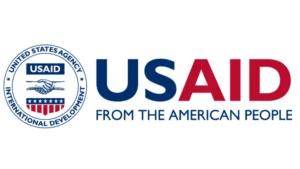Impact on HIV/AIDS Services in Cameroon
The recent suspension of U.S. foreign aid, including funding for HIV/AIDS programs, has raised significant concerns about the continuity of HIV treatment and prevention services in Cameroon. The U.S. President’s Emergency Plan for AIDS Relief (PEPFAR) has been instrumental in supporting Cameroon’s efforts to combat HIV/AIDS, providing critical resources for treatment, prevention, and care services.
The funding freeze has led to immediate disruptions in HIV/AIDS services across Cameroon. Community-based programs, which play a vital role in prevention efforts, have been particularly affected. The suspension has resulted in the closure of drop-in centers and the termination of outreach workers’ contracts, leaving vulnerable populations without essential support. This disruption threatens to reverse the progress made in reducing new HIV infections and could lead to a resurgence of the epidemic.
The Ministry of Health in Cameroon has developed mitigation measures to ensure the continuity of HIV services. These measures include reallocating health personnel and adjusting workloads to fill the gaps left by the suspended funding. However, the sudden loss of 2,332 personnel previously funded by PEPFAR presents a significant challenge, and the sustainability of these stopgap measures remains uncertain.
Global Implications and Responses
The suspension of U.S. aid extends beyond Cameroon, with potential global repercussions. UNAIDS has warned that if PEPFAR is not reauthorized between 2025 and 2029, there could be a 400% increase in AIDS-related deaths, amounting to an estimated 6.3 million lives lost.
In response to the funding cuts, UNAIDS is urging for a continuation of all essential HIV services during the U.S. pause in foreign aid. The agency emphasizes the importance of maintaining treatment for the 20 million people worldwide who rely on U.S.-funded programs, while also highlighting the need to sustain prevention efforts to avoid new infections.
Conclusion
The suspension of U.S. HIV/AIDS funding poses a significant threat to the health and well-being of individuals living with or at risk of HIV in Cameroon and other affected countries. While local health authorities are striving to mitigate the impact, the scale of the funding cuts presents substantial challenges. The international community’s response in the coming months will be crucial in determining the future trajectory of the global fight against HIV/AIDS
